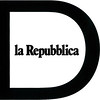Speaking and events
“We work toward freedom at many levels—the free play of little kids, the agency of families and local groups in organizing math activities, the autonomy of artists and makers, and even liberty for us curriculum designers. … No single piece of mathematics is right for everyone. People are different, and people need to approach mathematics differently.”
~ Dr. Maria Droujkova
5-Year-Olds Can Learn Calculus, The Atlantic
Speaking
Dr. Droujkova and the Natural Math crew offer visits and online appearances to conferences, math circles, maker spaces, educational meetings, professional development workshops, and other gatherings. Write moby@moebiusnoodles.com to discuss your event ideas, schedule a speaking engagement, and learn about Maria’s rates and availability.
Math is what you make of it
All our talks, workshops, and meetings have something in common: we invite the audience to play. Beautiful, useful, meaningful, and fun aspects of complex mathematics turn into a playground where everyone can explore and learn and grow. These mathematical adventures help to see the patterns and structures of mathematics, and re-examine the ways to learn and teach it.
Expertise
Maria Droujkova has almost twenty years of experience in mathematics education research and development. She works with diverse learners and situations, such as early algebra and calculus with family groups, Math Circles, MOOCS, and courses and workshops for K-12, college students, and teachers. Dr. Droujkova is the founder of several online educational communities, including the Natural Math network and Math Future interest group. She has MS in Applied Mathematics from Tulane University and PhD in Mathematics Education from NCSU. Her studies have been supported by grants, and published and presented nationally and internationally.
Some events in 2014
- 1001 Circles. Presentation at Connecting Online conference, February
- From Space Origami to 3D Printing: Coolest Math Occupations to Try at Home. Invited talk at Triangle Sci-Tech Expo, Museum of Natural Sciences, Raleigh, April
- Adventurous Design in Mathematics Education. Keynote, Learning Revolution Online conference, April
- Natural Math. Booth at the Raleigh Maker Faire, June
- 5-Year-Olds Can Learn Calculus. Invited talk at Moodle MOOC Online, June
- Fractals in Nature. Invited talk, STEM to LEAF summer camp, July
- ideaSPARK at SPARKcon, September
Samples of past events:
 I took a MOOC! Now what?! invited presentation. Online, June 2013 I took a MOOC! Now what?! invited presentation. Online, June 2013Using online communities for collaboration and collective action in mathematics education. |
 Games panel, Wolfram Computer-Based Math Education Summit. London, England, November 2011 Games panel, Wolfram Computer-Based Math Education Summit. London, England, November 2011The role games, competitions, and other new modalities for learning will play in the future of STEM education. |

















